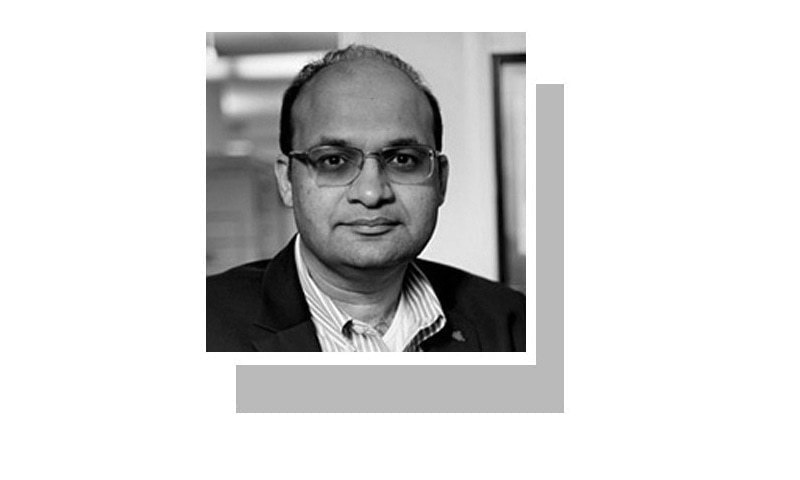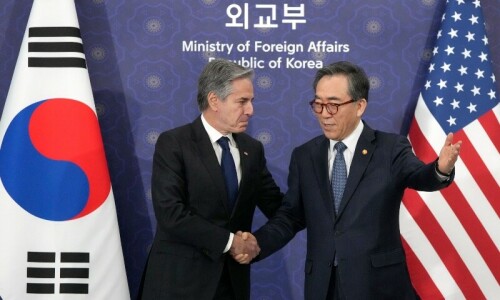JAVED, who works as a driver, told me that till 2017-2018, he was able to manage his household expenses on his salary alone. Since then, it has been impossible. He had to ask his son, who was in high school, to leave his studies and take up a job. Javed said that even now, with two incomes, household expenses are getting harder to manage. His only option, other than asking his employer for a raise and telling his son to do the same thing, was to take his elder daughter out of high school and see if she, too, could get a job.
We have faced high inflation over the last few years. It has been particularly bad over the last year or so. For most people, salaried or self-employed, incomes have not kept pace with inflation and liquid savings have lost value. It is no wonder that standards of living have gone down.
But people have to realise that we are not done with the high inflation period. The worst is yet to come and might continue for a few years, if not longer. For people who cannot move out of the country, who don’t have diverse income streams or foreign currency-denominated income streams, and who don’t possess savings in instruments that stay ahead of inflation (in gold or dollars), the tough times will get even tougher. Standards of living will have to come down substantially. And this will remain the case for the majority of people in the country for many years to come.
For most people up to upper-middle-income levels, there will need to be substantial recalibration in expenses. Essentials will have to be prioritised and a lot of, or all non-essentials will have to be cut. Some people might be able to take on additional work in the form of evening jobs or working overtime, but this is unlikely to be the case for most people.
We are not done with the high inflation period. The worst is yet to come.
But the real problem is that for most people, expenditures were already on essentials alone and there was not much slack available. Today, essentials will need to be cut as well. People will have to rethink how often they will eat out or what they will eat; how much to spend on education and health and when; whether there is a need to move children to cheaper or government schools or, under more difficult circumstances, to withdraw their child from school altogether; delay visits to the doctor; postpone marriages, etc.
Some businesses might be able to pass on all of the higher costs to their customers, but most will not be able to do so. They will, therefore, not be able to increase the salaries of their employees in line with inflation. But they will have to think of other ways they might be able to help their employees. Working from home and other innovations will need to be explored.
For all of the above, the fact remains that for most people in Pakistan, there has been and will be a substantial reduction in standards of living, and these this will persist for some time. If the government is able to bring the country out of the crisis, recovery might take a few years. But if the crisis persists, and this is not unlikely, the situation will continue to deteriorate and any recovery will take even longer. The current generation of workers and those who are going to be entering the labour market in the next few years will need to internalise this truth.
There is a big role for the government in terms of offering effective safety nets and offering quality healthcare, education and other public goods. But we know our government does a poor job in these areas so we cannot expect a whole lot from it.
The best way, of course, would be for people to create more income streams, especially, foreign currency-denominated ones. But this is not easy. How many people will be able to leave Pakistan to work in the Middle East or elsewhere, or migrate to other countries? The numbers over the next few years will at best be a few million. Similarly, creating a foreign currency-denominated stream while living in Pakistan is not easy either. Most Pakistanis do not have the skills to be able to do that through the internet. For those who are able to do it, this can be a wonderful hedge against inflation.
Creating secondary income streams for most will come down to either taking on more work or asking other family members to join the labour market. Taking on more work in an economy that is slowing down is not going to be easy. This is a time when a lot of employers are laying off their workers. The same problem is going to hit new entrants in the labour market. Pakistan has one of the lowest female labour market participation rates in the world. If households move to multiple earners per household, as long as it is not children being forced out of education and into the labour market, this might be good for the country. But the main hitch is going to be availability of work in a struggling economy.
Real incomes have fallen drastically over the last few years and the trends are going to continue for some years to come. People must realise their standards of living have declined and will decline further. With the same money they have been earning, they cannot maintain the lives they did some years back. The only way to maintain standards would be to have more income. Some will be able to do so by going abroad, taking on more work or having more family members join the labour market. For most, these options are not going to be available and will not work. For them recalibrating expenditures and lifestyles to the greatest extent possible will be the only option. The people of Pakistan will continue to pay a heavy price for the mess we are in.
The writer is a senior research fellow at the Institute of Development and Economic Alternatives, and an associate professor of economics at Lums.
Published in Dawn, February 17th, 2023










































Dear visitor, the comments section is undergoing an overhaul and will return soon.